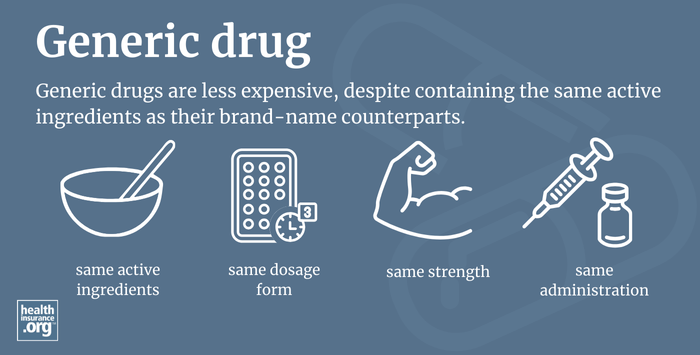
What is a generic drug?
Once a company's patent on a brand-name prescription drug has expired, other drug companies are allowed to sell the same drug under a generic label. Generic drugs are less expensive, despite containing the same active ingredients as their brand-name counterparts.
According to the FDA, generic drugs are identical to the brand-name versions in several ways: They contain the same active ingredients, have the same strength, and use the same dosage form and route of administration.1
How common are generic drugs?
Most prescription and health insurance plans reward clients for choosing generic drugs, as out-of-pocket costs tend to be lowest for generic drugs, and higher for brand-name drugs. So it's not surprising that nine out of ten prescriptions filled in the U.S. are for generic drugs.2
Footnotes
- "Generic Drugs, Overview & Basics" U.S. Food and Drug Administration. Accessed Nov. 13, 2024 ⤶
- "Generic Drugs" U.S. Food and Drug Administration. Accessed Nov. 13, 2024 ⤶
